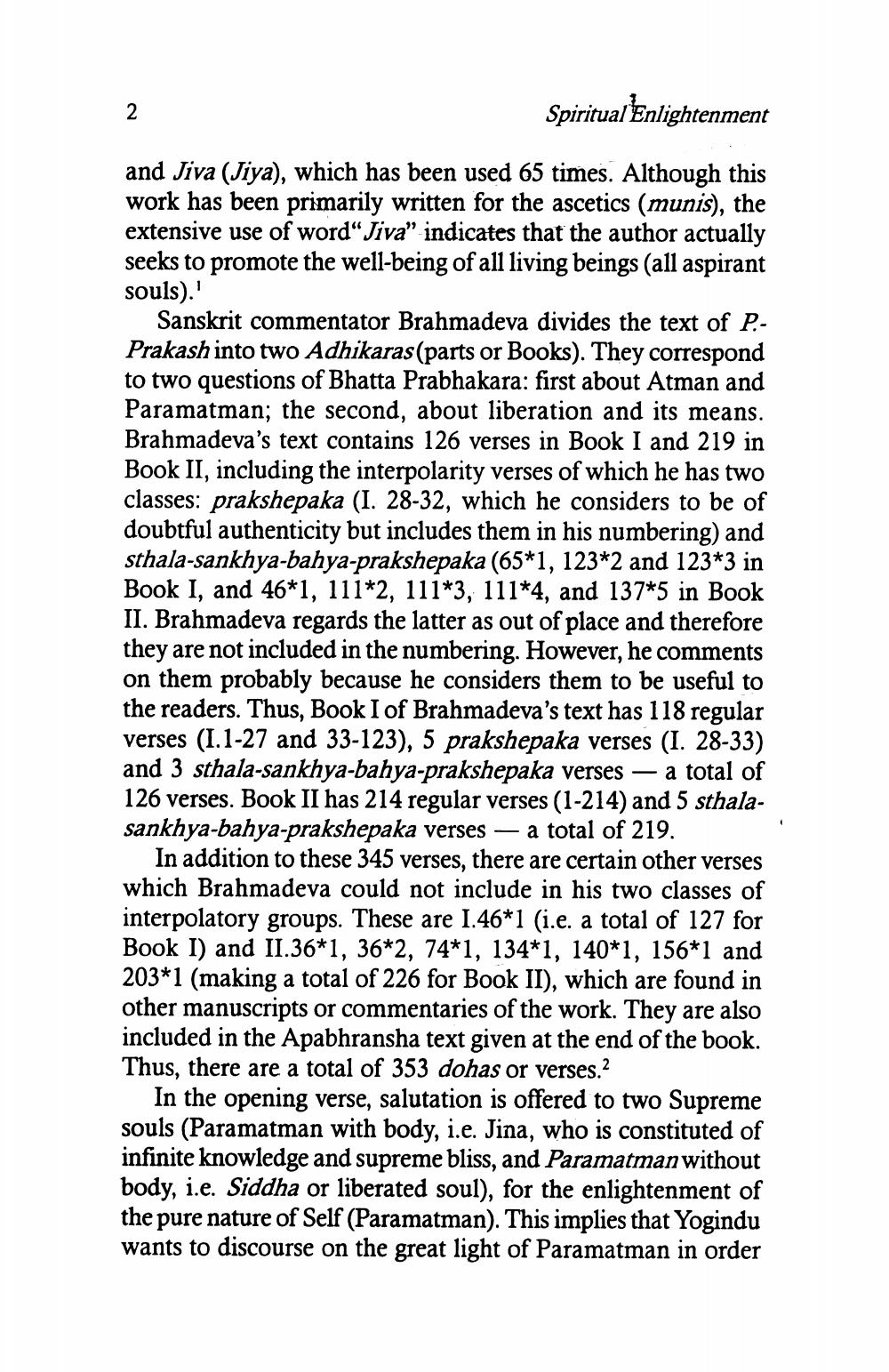________________
Spiritual Enlightenment
and Jiva (Jiya), which has been used 65 times. Although this work has been primarily written for the ascetics (munis), the extensive use of word" Jiva" indicates that the author actually seeks to promote the well-being of all living beings (all aspirant souls).'
2
Sanskrit commentator Brahmadeva divides the text of P.Prakash into two Adhikaras (parts or Books). They correspond to two questions of Bhatta Prabhakara: first about Atman and Paramatman; the second, about liberation and its means. Brahmadeva's text contains 126 verses in Book I and 219 in Book II, including the interpolarity verses of which he has two classes: prakshepaka (I. 28-32, which he considers to be of doubtful authenticity but includes them in his numbering) and sthala-sankhya-bahya-prakshepaka (65*1, 123*2 and 123*3 in Book I, and 46*1, 111*2, 111*3, 111*4, and 137*5 in Book II. Brahmadeva regards the latter as out of place and therefore they are not included in the numbering. However, he comments on them probably because he considers them to be useful to the readers. Thus, Book I of Brahmadeva's text has 118 regular verses (I.1-27 and 33-123), 5 prakshepaka verses (I. 28-33) and 3 sthala-sankhya-bahya-prakshepaka verses a total of 126 verses. Book II has 214 regular verses (1-214) and 5 sthalasankhya-bahya-prakshepaka verses a total of 219.
—
In addition to these 345 verses, there are certain other verses which Brahmadeva could not include in his two classes of interpolatory groups. These are I.46*1 (i.e. a total of 127 for Book I) and II.36*1, 36*2, 74*1, 134*1, 140*1, 156*1 and 203*1 (making a total of 226 for Book II), which are found in other manuscripts or commentaries of the work. They are also included in the Apabhransha text given at the end of the book. Thus, there are a total of 353 dohas or verses.2
In the opening verse, salutation is offered to two Supreme souls (Paramatman with body, i.e. Jina, who is constituted of infinite knowledge and supreme bliss, and Paramatman without body, i.e. Siddha or liberated soul), for the enlightenment of the pure nature of Self (Paramatman). This implies that Yogindu wants to discourse on the great light of Paramatman in order




